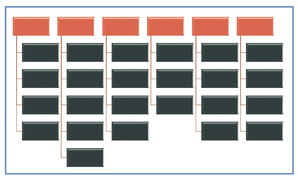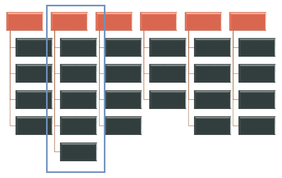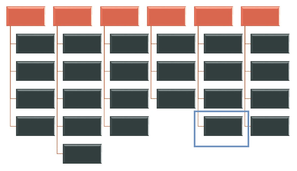We Offer Three Types of Courses
ClassicalBased on the award-winning Tapestry of Grace homeschool curriculum, the Lampstand Learning Center provides a classical Christian education using an integrated unit study approach, with the history of the world as the core organizational theme. Rather than studying subjects independently, students study the literature, geography, and worldview of a people as they also study their history, making rich connections and achieving a deeper understanding.
|
TraditionalWhile we are passionate about the classical model of education, we realize that the classical model isn't a good fit for every family. Perhaps you plan to use dual enrollment for your high schooler's last year and don't want to follow a strict classical, trivium-based model, studying history all four years of high school. We also offer stand-alone history, literature, science, and elective courses that allow your student to receive a deep understanding of the material from a biblical worldview.
|
ModuleFamilies come in many shapes and sizes, each with unique needs, schedules, and passions. Maybe you shudder at the thought of teaching The Odyssey and would like your student to drop into an 8-week study of that Classic work. Perhaps you are reaching your limit on how to help your rhetoric writer and want to drop them into a 6-week research paper course. Whatever your particular need or schedule, we have a variety of modules for your all your students!
|
Read widely, think deeply, and communicate winsomely.
DISCUSSION COURSES
FORMAT |
|
Our discussion courses use a flipped-class format, where students complete their work each week before class, then come together to discuss what they learned with their classmates and teacher. The beauty of this model is that students have time to digest and think about what they are learning, leading to a rich, more fruitful discussion. In these courses, teachers foster Socratic discussions, where students are asked open-ended questions that encourage them to think deeply about their own response to what they are studying and consider other points of view.
CLASS SIZE |
|
Because of our commitment to Socratic discussion, we cap our discussion classes to an average of ten students. Students are not just a number at the Lampstand Learning Center, but are a vital part of the discussion and are known and cared for by their fellow classmates and teachers. This provides a safe environment in which all students can blossom.
BOOKS |
|
We don't use textbooks for our discussion classes. Instead, students read what are called "living books"--books written by someone who is either an expert in that area of study who is passionate about the topic or who personally experienced the events about which they are writing. These wonderful books come to life in the student's imagination and draw students into their world.
GRADING |
|
Because Socratic discussions are central in our discussion courses, student grades are heavily weighted on their discussion participation. For each class they attend, they receive a discussion grade that is based on several factors, such as their preparation for the discussion, whether they can cite specific information from their reading to support their reasoning (which also prepares them for academic writing), whether they go beyond the facts to make connections with the world around them, and whether they are humble and respectful with their teacher and fellow students. Many of our discussion courses also include periodic quizzes, tests, and in-class presentations, which impact their overall grade.
LECTURE COURSES
FORMAT |
|
Some courses don't lend themselves well to discussion, such as courses that focus on teaching a skill like writing, grammar, and logic. In these courses, teachers introduce a new skill during class time and send students off to develop that new skill by completing tasks that stretch their muscles in that area.
CLASS SIZE |
|
Since Socratic discussion is not central in our lecture courses, we allow slightly larger classes, capping these courses at an average of 15 students. This keeps classes small enough to give each student individual attention outside class. For example, in our writing courses, teachers provide detailed, written feedback on every paper submitted, helping students to discern their own strengths and areas of growth and encouraging them to stretch and grow.
GRADING |
|
While discussion participation is still a factor in lecture courses, far more weight is placed on mastery of the skill studied in the course. This evaluation varies from course to course but includes grades from things such as problems assigned, quizzes, tests, and papers written.
|
|
Copyright ©2020-2022 Sola Gratia Ministries LLC
|




